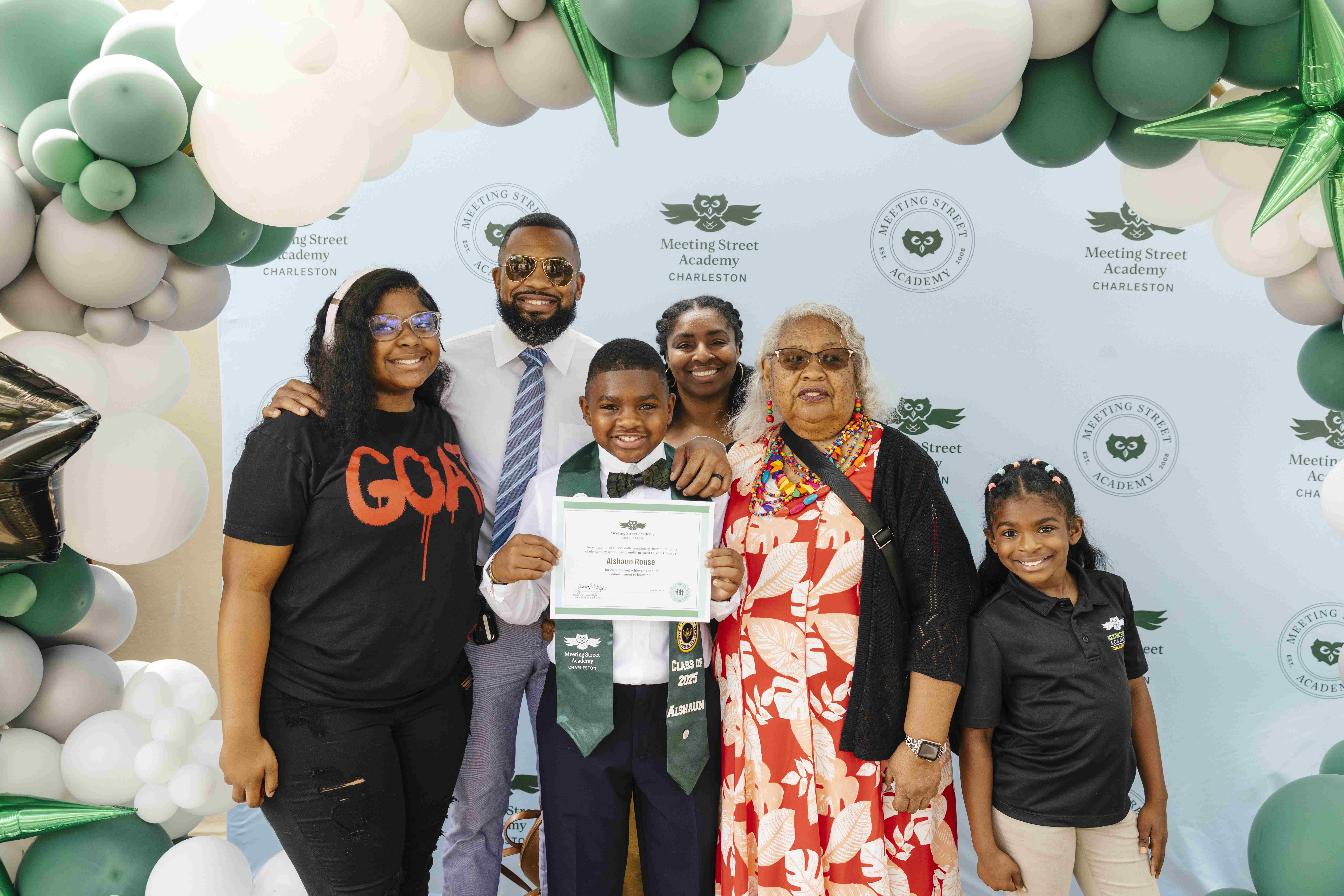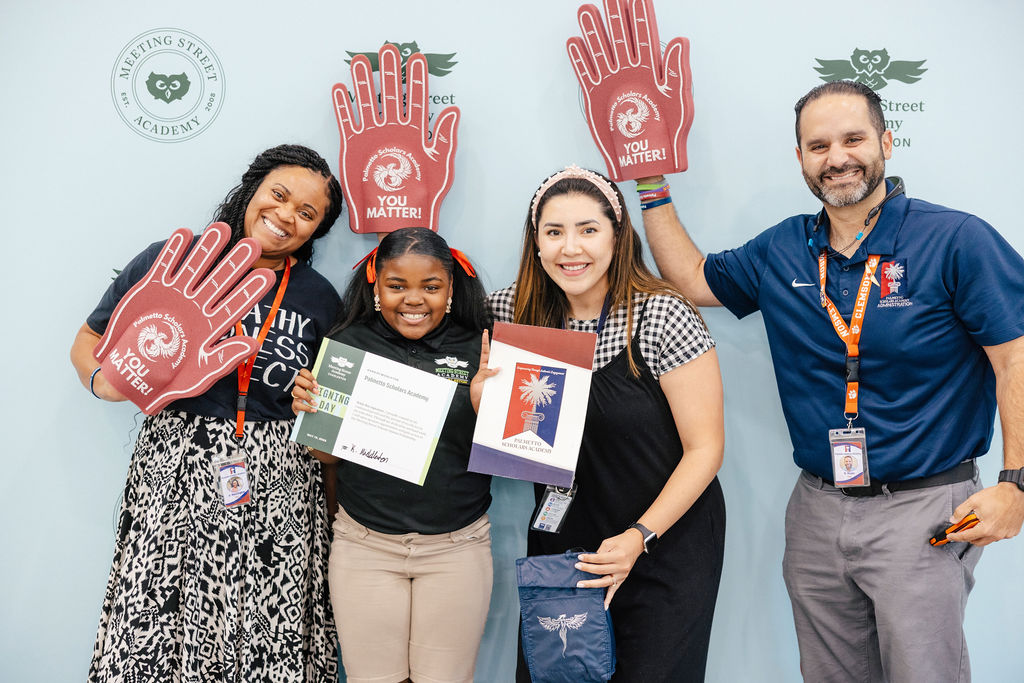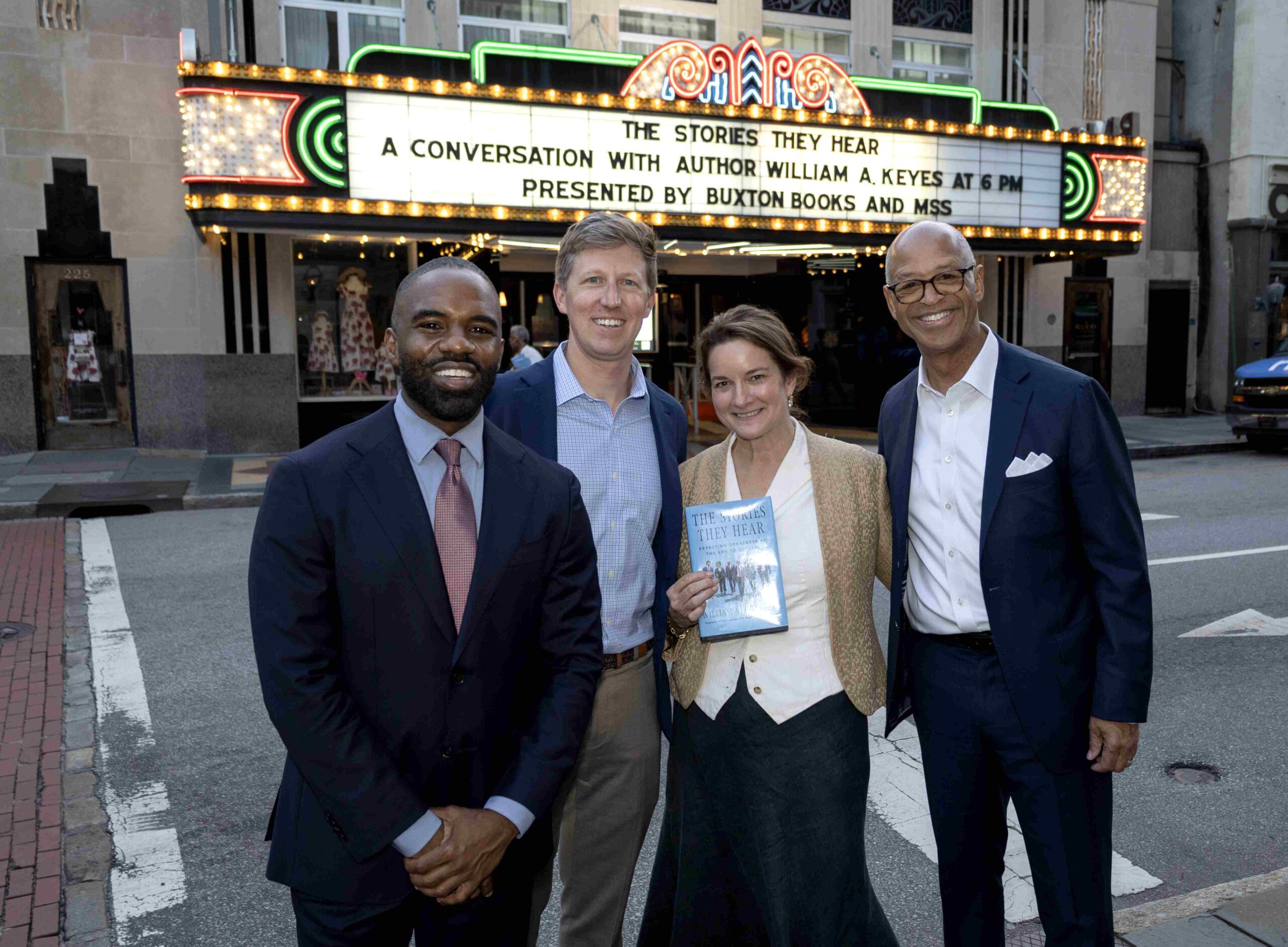As a Black educator who has spent nearly my entire school-based career in turn-around schools, I’m all too familiar with the disparities that exist in education along racial and socioeconomic lines, which are very likely to influence education and life outcomes for students. Research supports, and my experiences have shown me that facilitating positive outcomes for students in schools requires that schools not only address academic needs but also social and emotional needs, and consider factors outside of school that impacts a student’s ability to succeed. I’ve committed the last decade to education equity work with a strong focus on school communities which value inclusion backed by comprehensive student support services, community and family partnership, and inquiry-based learning. With this in mind, Meeting Street Schools (MSS) immediately appealed to both the teacher and leader in me. At MSS, our vision is to prove that it is possible for ALL students in South Carolina to succeed, and to fundamentally alter expectations for educators and students working in schools across the Palmetto State. At MSS, we believe providing additional student support services and programs pave the way for student success. Part of that additional support stems from operating a full-inclusion model and supporting great clinical teaching practices, where teachers and leaders partner with families and invest students in their learning while providing highly individualized academic and social-emotional support.
While not all schools take this approach, I strongly believe all schools could benefit from putting a strong focus on student support services. Over the next few months, members of our student support team will be sharing insights on the MSS approach to student support. This week we start with Meeting Street @ Burns Director of MTSS, Mia Riddle. Mrs. Riddle explains the principles of a multi-tiered system of support (MTSS).
What is a Multi-Tiered System of Support (MTSS)?
MTSS is a school-based system that emphasizes high-quality instruction for all tier levels. It provides multiple systems of support for students based on data. Through multi-tiered services, students receive intensive interventions and services within Tier 2 and Tier 3 support.
There is a great analogy by Katie Novak that helps to define MTSS even more clearly: you have a car and you have very firm goals for your car; you need it to run smoothly and safely, so you always make sure to get the routine services.
Tier 1 at the mechanic involves an oil change, topping off fluids, a tire rotation, and a good ole’ vacuuming. While there, there are numerous universal screening measures to determine if additional services are needed. They check all the engine fluids, tire pressure, and windshield wipers and hook up machines that talk to the engine to see if there are any potential problems.
Sometimes, as a result of this screening, you need more services. We’ve all had the oil change appointment that quickly morphed into a radiator, transmission service, or tire replacement. These are the Tier 2 services that we only need to get when those fancy assessments and the mechanics share that we need them. It’s important to note that when Tier 2 services are necessary, you don’t lose out on Tier 1. In many cases, the same mechanic can perform both Tier 1 and Tier 2 services right at the same place. And you don’t have to get those Tier 2 services every time just because your car needs them now. Once the mechanics have shown that the additional services served their purpose, you are free to go back to just getting your oil changed.
But let’s say the problems continue even after you had a transmission service. The car is jolting about when you get on the highway and makes a funny noise. You take your car in for a level 2 service again, but maybe that isn’t enough. Maybe you need more support. Let’s say you need a whole new transmission. Again, that doesn’t mean you don’t get your oil changed! This procedure might be classified as a Tier 3 support and even fewer people need those services – but when you do need them, I guarantee you’ll be thrilled they’re available. As the level of service goes up, the repair is more intensive, and progress monitoring is critical.
Essentially, when your car needs services, you should be able to get those services. And the same is true in our schools. When we have an MTSS, our schools offer multiple levels of support to students – when they need it. Higher levels of service don’t replace the “maintenance” (general education) services. It’s about supplementing, not supplanting, Tier 1.
Is MTSS the same as RTI?
As the level of service goes up, the repair is more intensive and progress monitoring is critical.
Although they support each other, MTSS and RTI are not the same. Response to Intervention (RTI) is a multi-tier approach to the early identification and support of students with learning needs. The RTI process begins with high-quality instruction and universal screening of all children in the general education classroom. This is referred to as Tier 1 support. MTSS operates on a broader scope within a school. MTSS supports students within Tier 1 while predominantly supporting students through intensive Tier 2 and Tier 3 for academic, behavioral, attendance, and social-emotional intervention.
Does an MTSS Framework look the same everywhere, and is there a best approach to developing your campus’s framework?
Within our network, the overarching framework for MTSS looks the same. Our network holds monthly meetings so leaders can collaborate and connect across all campuses. At Burns, our approach, much like the other campuses, is to continuously work collaboratively as a team, making data-driven and data-informed decisions. In doing so teams are able to meet students where they are to best support their needs. Within the Burns campus framework, we continuously strive to reflect on our practices, revise as needed and support teachers as well. We accomplish this through monthly MTSS meetings per homeroom, developing and implementing refined processes for student referrals, and operating with a holistic child approach within interventions using the most recent data. Engaging families and supporting them is an intricate part of supporting the MTSS framework. MTSS is a structured system, and it works.
Beyond being a structured system, MTSS is also about a mindset shift in how schools support students. MTSS fosters the level of care needed to sustain education as the vehicle that drives us to our ultimate destination, students reaching their greatest social and academic potential.



